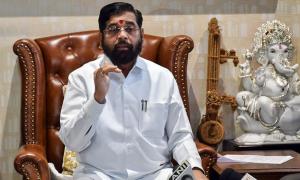The New York Stock Exchange bought a five per cent stake in India's National Stock Exchange last month. Nelson Chai, CFO and executive vice-president, NYSE Group Inc., speaks with Outlook Money's Rajesh Kumar about the rationale for the deal, NYSE's game plan, and Indian exchanges. Excerpts.
Why did you want to buy a stake in NSE?
New York Stock Exchange is the world's largest stock exchange. The market cap of its listed stocks, at roughly $24 trillion, is three times larger than the next largest exchange. We believe exchanges are going to go global and we want to be the leader.
If you look at our customer base, it is global. Some of the biggest banks already have global footprints. Over time, there will only be a few large, global, multi-national, multi-product exchanges.
We are the first stock exchange with a larger strategy of entering fast-growing Asian economies. The NSE investment is our first in Asia. We saw the dramatic growth of the Indian economy and believe that in the longer term it will continue to grow. So, it makes a lot of sense to be here.
Although India is seeing large FII inflows in equity market, questions are being raised about their sustainability. What's the view of US investors putting money into India?
I don't know of anything that goes on forever, but I certainly think it (inflows) will continue because there is tremendous amount of growth here. The talent pool and education structure here facilitates a fair amount of growth, particularly in areas like technology. As the markets become more global as barriers will continue to go down, they should put more investments here.
India is debating whether to make the rupee fully convertible. Your thoughts?
I definitely believe in free markets, (but) I understand that in an emerging market you want a balanced approach.
As India's debt market is not open to foreign investors, our companies borrow abroad and bear the currency risk. Any advice on this since you are with NSE now.
It seems like that there should be an opportunity to open the corporate debt market here. The US corporate debt market is extremely large. It should be one of the opportunities that we will look at. I don't see why it will not be robust here. There is interest in public debt here, but not corporate debt.
Do you think the system of earmarking shares for different sets of investors in an IPO in India is regressive?
No. The market is developing. Indian businesses are growing very quickly. The structures and processes will follow. I am most impressed with the way people are viewing markets and that will be a huge advantage in the long term.
Can the securities transaction tax hurt India's attractiveness to foreign investors?
Taxes will vary in different countries. I don't think India is in a worse or better situation. (Here) people are very cautious. But, over time, it will see much less restriction.
About the stake issue, what will be the exit mode in case you want to? Are you banking on a listing of the NSE?
We are not investment managers. Our shareholders don't ask us to go and make investments with quick time horizons. We make investments for the long term. It's an investment both in India and NSE. We have just signed the agreement. So, it's premature for us to talk about exits. We are here for the longer term.







More from rediff